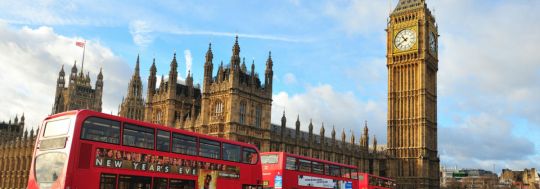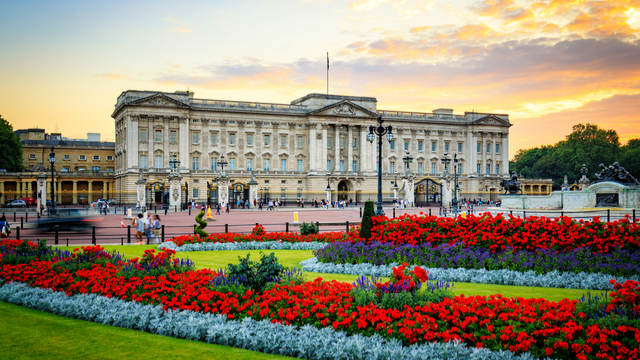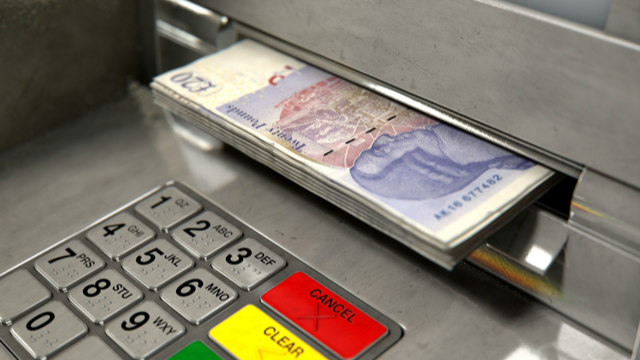Travel Money Cards for the United Kingdom

Co-author: Maddie Clarey
Thinking about dropping in on the Queen for a cuppa? If you’re planning a trip to the United Kingdom and are considering a travel money card for your spending while you’re there, here are some of the things to consider.
According to VisitBritain, in 2017 alone over 1 million Australians visited the United Kingdom, spending 1.19 billion pounds collectively. Whether you’re planning on shopping on London’s Oxford Street or exploring the mountains and lochs in the Scottish Highlands, it could be helpful to arrange a way to access your money in advance.
One way of withdrawing cash and making card payments with retailers during your UK holiday is to use a travel money card.

Compare travel money cards for the UK
The following table displays a snapshot of travel money card products on Canstar’s database that can be used for travel to the United Kingdom, sorted by Star Rating (highest to lowest) then by provider name (alphabetically). Check upfront with your provider and read the PDS to confirm the details of a particular product, and whether it meets your needs before deciding to commit to it.
How do travel money cards work?
Typically travel money cards work like this: you exchange your Aussie dollars for Great British pounds – or whatever eligible currency you need –and load them onto your card before your trip. Then, when you arrive in the UK, you can expect to use the card to withdraw pounds and make card payments with some retailers in-store or online. You may also be able to reload your card with extra funds if you need them. Bear in mind, though, that some cards may only offer some of these features.
Is a travel money card the right option?
Depending on the type of traveller you are, travel money cards can be useful for a number of reasons. For example:
- They allow you to lock in the exchange rate in advance of your trip
- They are designed to be easy to use – similar in function to a debit card
- They can be used with multiple currencies
- They aren’t connected to your transaction account, so you can only lose the amount that’s on the card if it’s stolen
There can also be disadvantages to using a travel money card:
- You may lose out if the exchange rate improves after you’ve locked in your rate
- Travel money cards can come with various fees, such as currency conversion fees, ATM fees and inactivity fees
- They may not be accepted everywhere
- Some travel cards have a reload delay – that is, it may take several days for you to be able to access extra money you load onto the card.
Learn more about the potential pros and cons of travel money cards.
Travel money cards aren’t perfect for every situation, or every traveller, so it can be smart to consider a combination of different travel money options for your trip to the UK, such as loose cash, as well as a travel credit or debit card.

Compare Travel Credit & Debit Cards
What exchange rate will I get?
The exchange rate you might get when converting your Aussie dollars into Great British pounds is likely to vary depending on when you load your card, as exchange rates generally fluctuate regularly due to a number of factors. Check with your travel money card provider as to what the current rate is when you are loading money onto a travel money card.
It’s important to note, however, that the exchange rate quoted by your card provider may be different to the official exchange rate quoted by the RBA.
This is because travel money card providers typically charge an ‘exchange fee’ on top of the quoted exchange rate. This fee can vary from card to card, so it’s worth comparing what each one offers for the Great British pound – as well as considering the other features and terms offered by the provider – to see which card best suits your needs. It’s worth considering that some travel money card providers may not list an ‘exchange fee’ as such – instead the cost of the exchange to the cardholder would be factored into the exchange rate they offer.
What to be aware of when travelling to the UK
According to UK Finance, cards are set to overtake cash as the most frequently used payment method in the UK. Almost all shops including cafes and pubs will accept credit and debit cards, particularly Visa and MasterCard.
While England, Scotland and Northern Ireland all use the same currency (pound sterling), each country issues their own different notes. So while you may be used to seeing the Queen on Bank of England pounds, there are also three Scottish banks and four Northern Ireland banks who issue pound sterling notes.
Practically, this may cause confusion if you are travelling between the countries as some places will only accept certain types of pounds. All retailers in Scotland and Northern Ireland will accept Bank of England issued pounds. However, the same cannot be said for English retailers. In England, most people will only accept English notes and they have no obligation to accept other pounds. So don’t be surprised if an English shopkeeper or cab-driver gives you a funny look or refuses to accept your money if you try to pay with Scottish or Northern Irish pounds. If you are travelling around the UK, you should be able to exchange your pounds at a post office or bank.
Some visitors may assume that euros are accepted as alternative currency in the UK. But this isn’t the case. Potential exceptions are big department stores like Harrods and Selfridges who may accept euros but would give you your change in pounds. Some larger stores in Northern Ireland may accept the euro as a concession to people visiting from the Republic of Ireland but they’re not obliged to do so.

Don’t forget to consider travel insurance
When travelling to the UK you may also want to think about an insurance policy to cover you for things like:
- Cancellation costs for flights, accommodation and tours
- Overseas emergency medical expenses
- Travel delay/changed travel plans
- Cover for theft or lost luggage and personal items
The table below displays a snapshot of travel insurance policies rated by Canstar with links to providers’ websites, sorted by Star Rating (highest to lowest) then by provider name (A-Z). These results are based on a couple aged 18-59 travelling to the United Kingdom. Check upfront with your provider and read the PDS to confirm the details of a particular product, and whether it meets your needs, before deciding to commit to it.
Compare travel money cards for other destinations
Compare Travel Insurance with Canstar
Image Source: Skyearth (Shutterstock)







